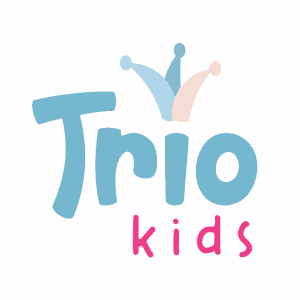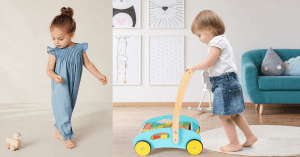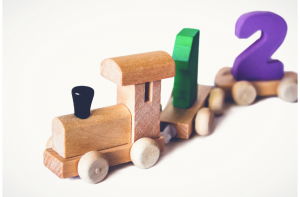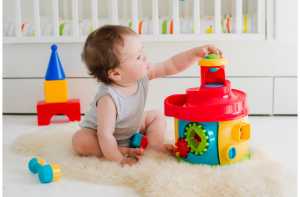- Copyright © 2024 - Trio Kids Singapore. All Rights Reserved. Designed by Digital Marketing Agency- WeProms
How Wooden Educational Toys Help Children with Special Needs Learn and Grow?
When it comes to teaching kids with special needs, finding the right tools is crucial. That’s where wooden educational toys come in. These toys are more than just playthings; they’re powerful tools that can make a real difference in a child’s learning journey.
In this blog, we’ll explore how these toys can help children with special needs learn and grow in a supportive and engaging way.
Table of Contents
Toys that Adapt to Each Child
Wooden toys are like chameleons; they can adapt to fit the needs of each child. No two children are the same, especially when it comes to learning. These toys allow teachers and parents to change things up based on what a child needs. If a puzzle is too easy, you can make it more challenging. If a game is too tough, you can simplify it. This adaptability means that every child can feel successful and proud of their progress.
Learning through the Senses
Kids learn best when they use all their senses – like touch, sight, and hearing. Wooden toys are perfect for this! They come in different shapes, sizes, and textures, which means kids can explore with their hands and eyes. For children who have trouble with sensory experiences, like those with autism, these toys offer a safe way to engage with different sensations. This can help them become more comfortable with new feelings over time.
Toys that Calm and Comfort
Imagine a toy that can soothe a child’s worries. Wooden toys can do just that. These toys provide a calming effect for kids who get anxious or overwhelmed. The act of playing with them can help kids focus their minds and relax. This is especially important for children with conditions that make them feel stressed or restless. By using these toys, kids can find a sense of peace and joy.
Making Friends and Sharing
Playing with others is an important part of growing up. Wooden toys encourage kids to play together, share ideas, and solve problems as a team. For children who struggle with social skills, like making friends or talking to others, these toys create a comfortable way to interact. When everyone is focused on the same toy, starting conversations and making friends is easier. This helps kids build connections and feel like they’re part of a group.
Learning at Your Own Pace
School can sometimes feel like a race, but learning is not one-size-fits-all. Wooden toys understand that. These toys let kids learn at their own speed. There’s no pressure to be the fastest or the best. Each child can set their own goals and celebrate their achievements. This boosts their confidence and makes learning a positive experience.
Building Confidence and Independence
Wooden educational toys play a vital role in building confidence and fostering independence among children with special needs. These toys offer a sense of achievement and mastery as children successfully interact with and manipulate them. When a child solves a puzzle or completes a task with a wooden toy, it boosts their self-esteem and encourages them to take on new challenges. This gradual progression of skills gives children a tangible way to measure their growth, instilling a sense of pride and confidence in their abilities.
Moreover, wooden toys encourage independent play and exploration. Children can engage with these toys on their own terms, experimenting with different ways to interact with them. This freedom of exploration enhances their problem-solving skills and allows them to develop a sense of autonomy. As they discover new ways to engage with the toys, children with special needs gain a stronger understanding of cause and effect, further empowering them to explore and learn independently.
Creating a Supportive Learning Environment
Incorporating wooden toys into the learning environment creates a supportive and inclusive atmosphere for children with special needs. These toys promote a sense of belonging and engagement, as they can be customized to cater to individual learning styles. Teachers and caregivers can select toys that align with a child’s preferences and strengths, ensuring that the learning experience is tailored to their unique needs.
The tactile nature of wooden toys also enhances the learning process. Children can physically interact with the toys, which aids in sensory integration and cognitive development. This hands-on approach allows children to better understand abstract concepts by manipulating tangible objects. Furthermore, wooden toys’ quiet and calming nature provides an environment conducive to focused learning, especially for children who may be sensitive to noise or distractions.
Choosing the Right Wooden Toys
Selecting the appropriate wooden toys is crucial in maximizing their benefits for children with special needs. Consider the child’s specific challenges, interests, and developmental goals when choosing these toys. Look for toys that offer a range of sensory experiences, such as toys with varying textures, colors, and shapes. Additionally, opt for toys that align with the child’s current skill level while also providing room for growth.
Collaboration between educators, parents, and therapists is essential when selecting wooden toys. This ensures that the chosen toys align with the child’s individualized education plan (IEP) and therapeutic goals. Regular assessment and feedback from the child can also guide the selection process, as their preferences and needs may evolve over time. By carefully curating a collection of wooden toys, you can create a personalized and effective learning toolkit that supports the child’s holistic development.
The Bottom Line
Wooden educational toys are more than just playthings; they’re tools that can shape a child’s learning journey in amazing ways. With their adaptability, sensory benefits, calming effects, and social opportunities, these toys offer a holistic approach to learning for children with special needs. By using these toys, kids can develop skills, make friends, and feel confident in their abilities.
Recent posts
Related posts

Trio Kids stems from our love of our 3 children. As a reminder to ourselves to prioritise them before anything else, we thought it would be best suited to name our brand after them.



